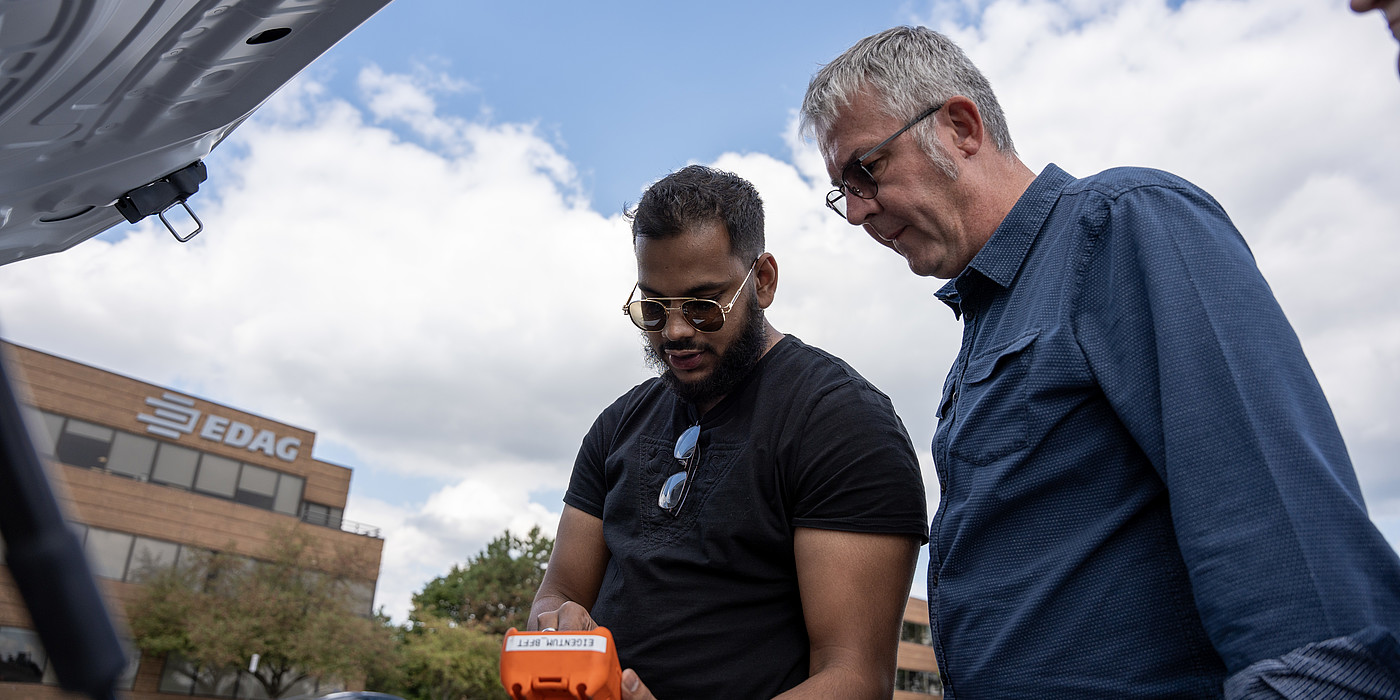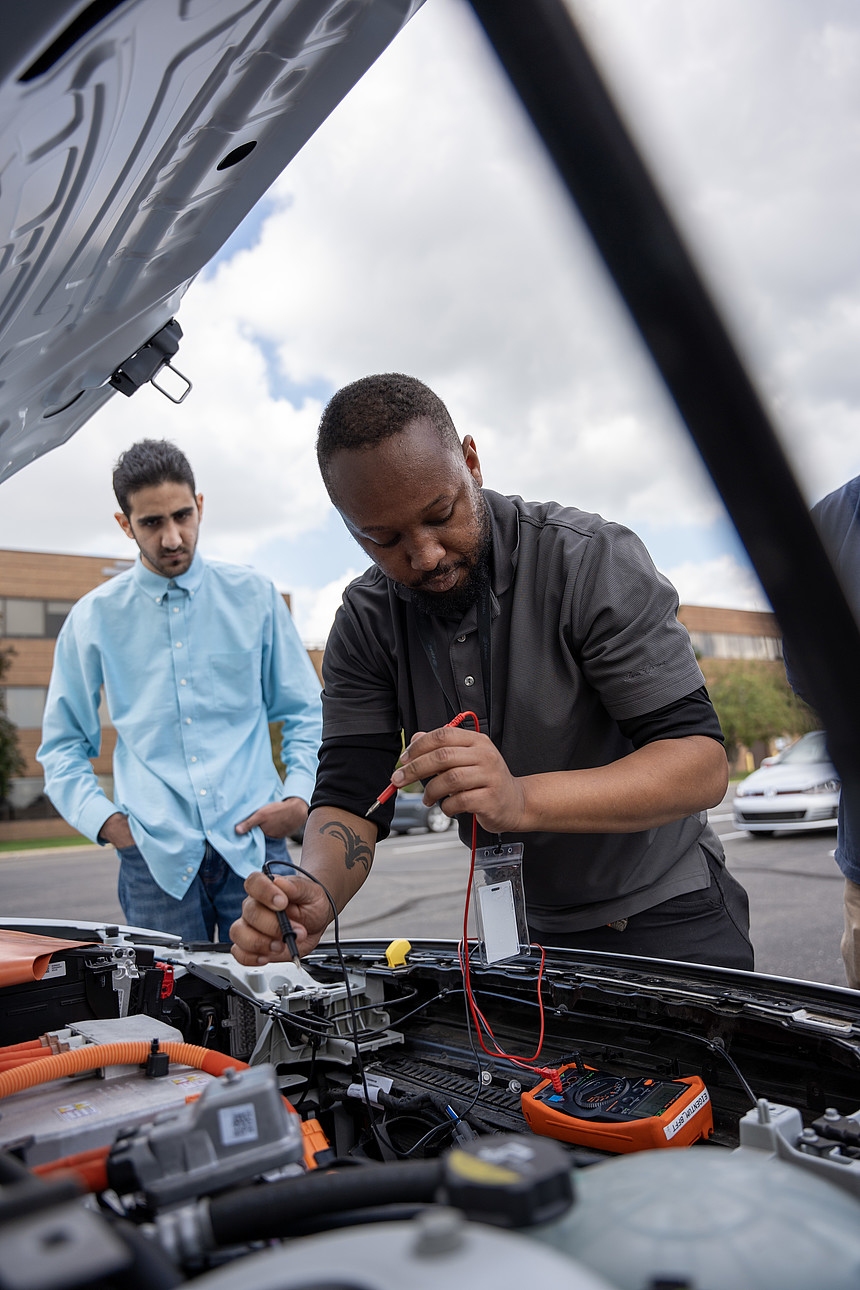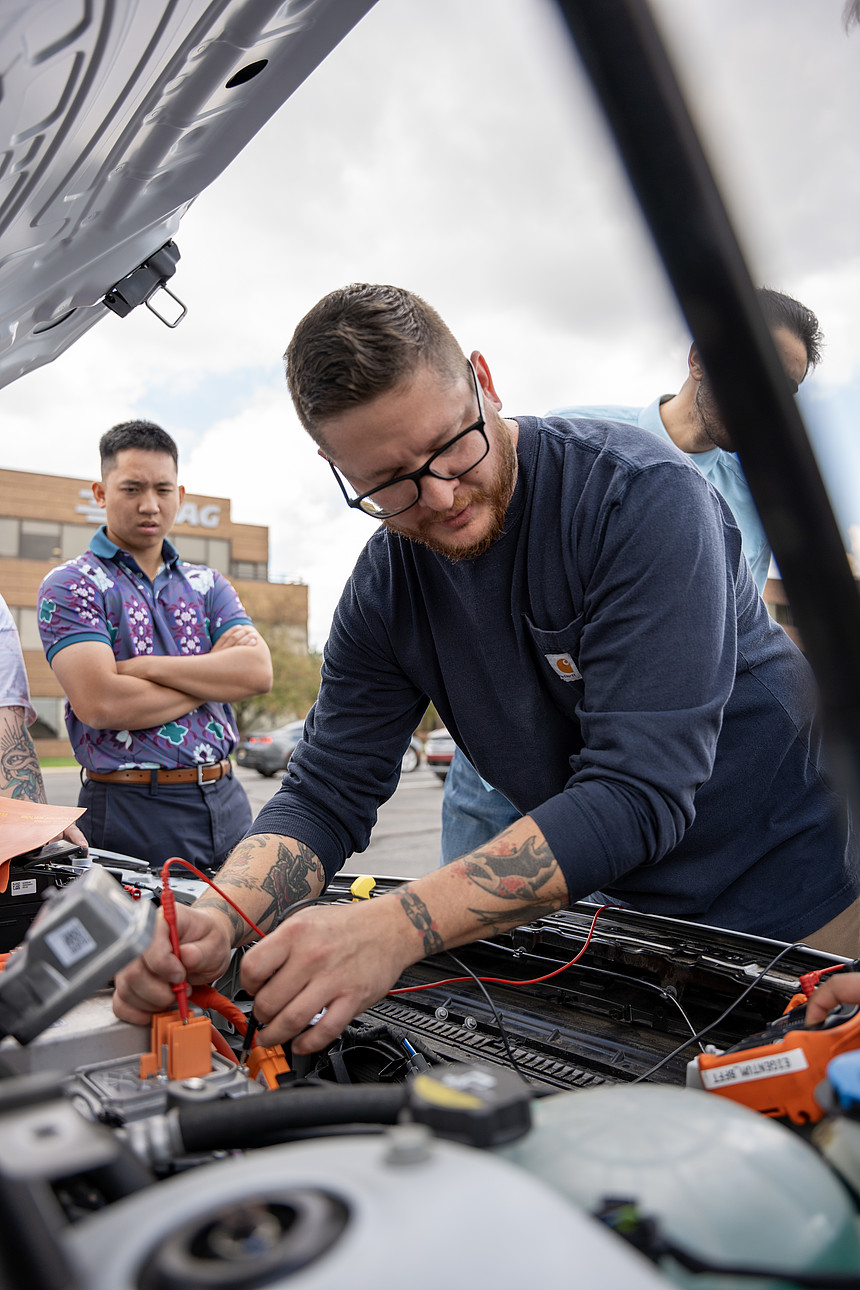It seems like not a day goes by where you don’t see EVs pop up in the news or on your social media feed. A growing number of new vehicles being manufactured and sold are electrified. Whether they are hybrid, battery electric, or fuel cell electric, it’s important for the industry and those who work in it to properly understand the dangers associated with the components of the high voltage system of the vehicle.
The shift towards electrification has more people starting to visit charging stations instead of gas stations, mechanics are servicing more electric vehicles, and rival companies vying to develop new vehicle technologies. While this is a welcome change in the automotive industry, there are risks associated with electrified vehicles that are not present in combustion vehicles. These newer risks are not always as easily identifiable as they are in combustion vehicles, therefore proper training is a necessary step to ensuring your work force can tackle challenges in a safe manner.
The new risks that are present in electric vehicles come from some of the components inside of them, namely those that are involved with the vehicle’s high-voltage system. The largest and perhaps most notable of these new components is the high-voltage battery pack, which is responsible for storing the energy necessary to propel the vehicle and operate its systems. Some others include the electric motor (some electric vehicles have multiple), the DC-DC converter (which converts high-voltage direct current to low-voltage direct current for the purpose of running many of the components inside the vehicle such as door switches and displays), and the PTC heater. Given the inherent risks with these components, modern electric vehicles also incorporate various safety mechanisms such as a service disconnect or a firefighter loop. EDAG’s high voltage safety trainings not only teach you about the dangerous components inside the vehicle, but also teach you how to identify and use the safety mechanisms inside the vehicle. This wholistic approach lets you learn from both sides, to have a more complete understanding of the vehicle’s systems and how to safely work with them.
EDAG’s high voltage safety training ensures that your organization adheres to the high industry safety standards of DGUV, OSHA, and NFPA 70E. Our training goes beyond basic safety protocols and delves into more advanced critical thinking skills and testing methods.
EDAG’s high voltage safety trainings are unique to others in that:
- We incorporate hands-on lab work on an electric vehicle under the oversight and guidance from an EDAG-certified HV Safety Trainer.
- Programs are compliant with the strict standards of DGUV, OSHA, and NFPA 70E.
- We will work with your organization to customize the programs to your specific applications where possible.
If you are interested in High Voltage Safety Training for yourself or your company please reach out to Kelly Martin, the EE Business Development Specialist at EDAG US.
Contact
Kelly Martin
Business Development E/E


